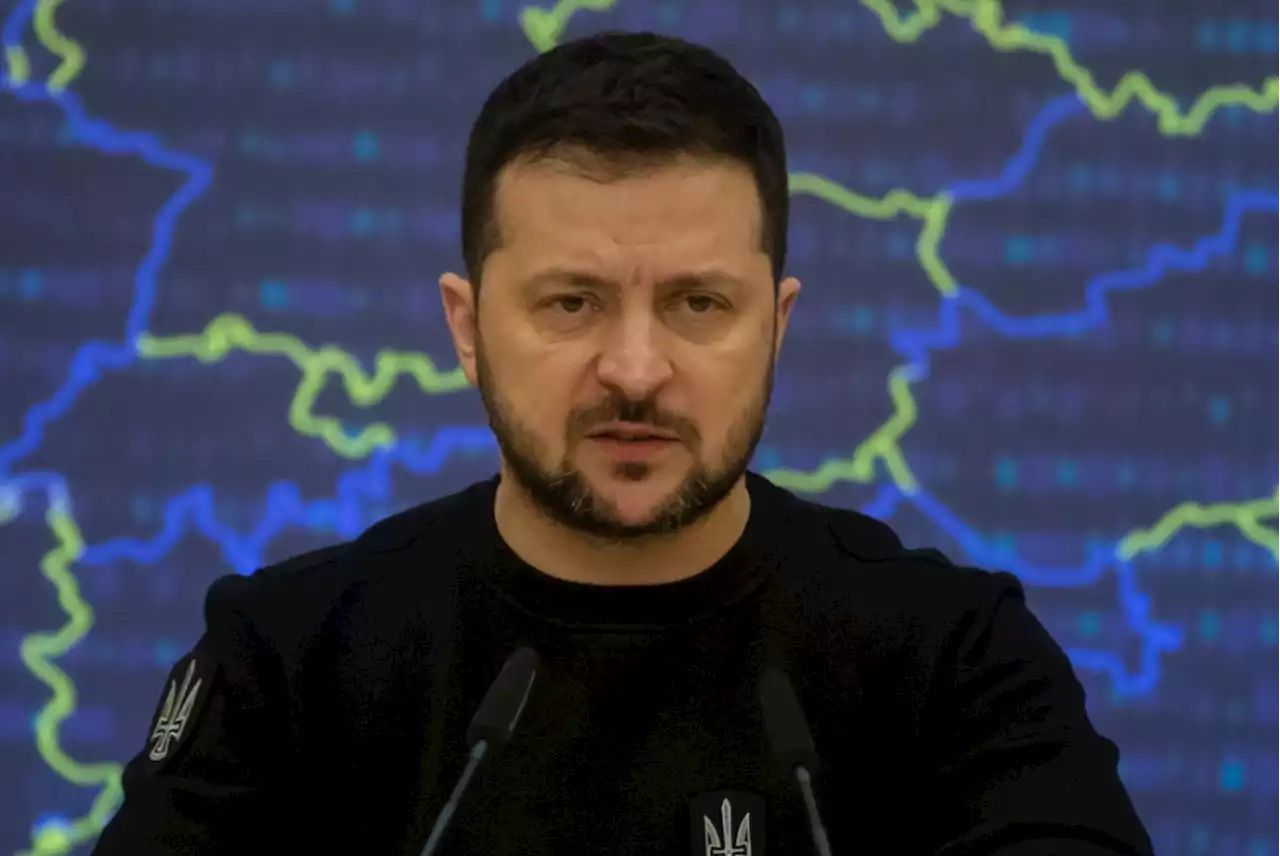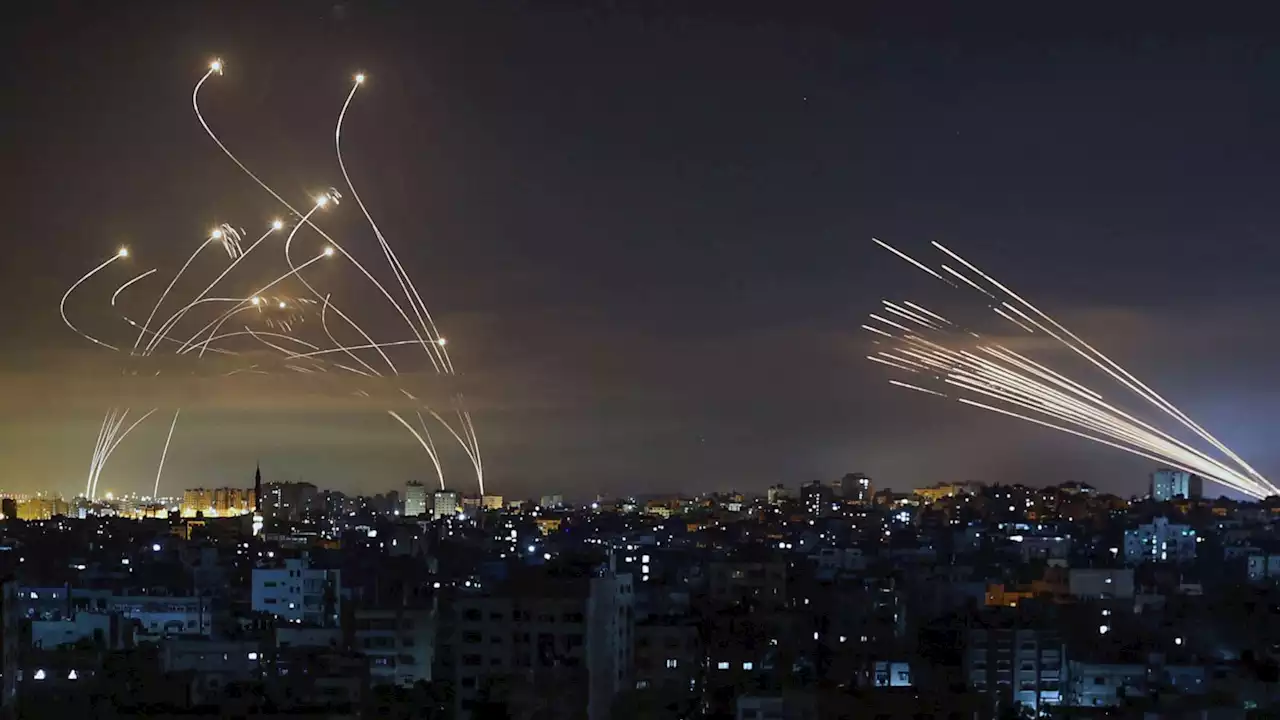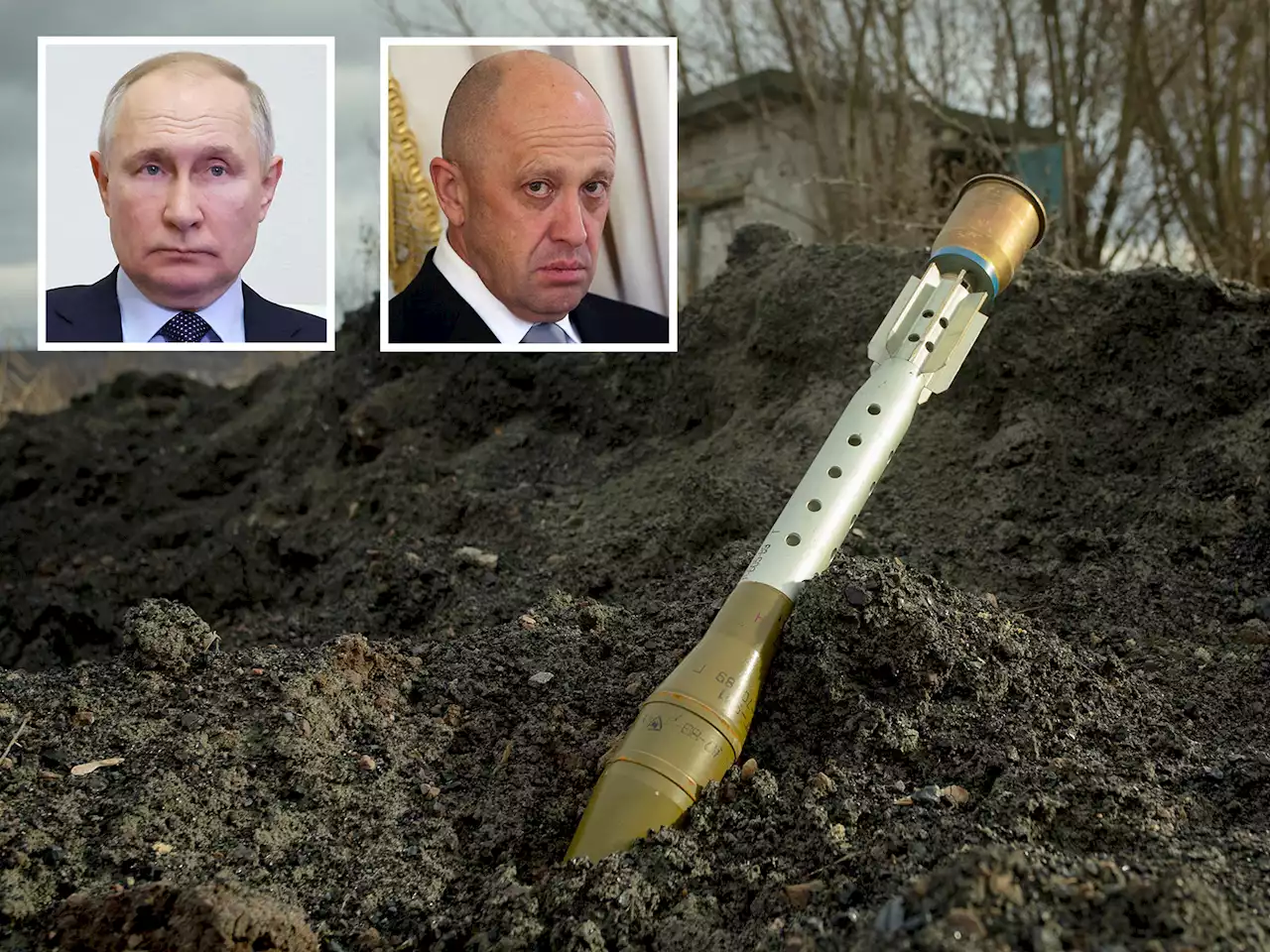The Wagner Group's losses in Ukraine have been so great that some are now calling it a 'suicide squad.'
Yevgeny Prigozhin—known as"Putin's chef"—has claimed credit for Russia's battlefield victory in Soledar
The Wagner Group, which has been heavily involved in the current fighting in Ukraine and assisted the Russian military in the annexation of Crimea in 2014, now seems to be playing a less prominent role in operations around Bakhmut. Putin is gradually, favoring instead professional military personnel and government officials.
Joana de Deus Pereira, senior research fellow at the Royal United Services Institute , a British think tank, said that at the beginning of the war, a largely commercial relationship existed between the Kremlin and Wagner Group. The paramilitary outfit was initially seen as a"very useful tool" and as"an instrument of war," she said.
"He sees himself as a defense minister or someone with a high profile inside the Kremlin, at least visible and respectful enough to be rewarded for what he has been doing for the country." "Looking at symbology, everything that Prigozhin does has meaning. He had a package of salt and paid with salt someone inside a car. He was basically saying we not only control the mines but we also control the villagers and the citizens of Soledar," she said.
"He used Soledar as a decoy, it was a smaller price, and declared this massive victory understanding that Bakhmut probably will be and is beyond reach," he said.As the war drags on, and as the Wagner Group loses a significant number of fighters in the brutal battle for Bakhmut, reports and data indicate that Prigozhin is facing difficulties finding new recruits.
Australia Latest News, Australia Headlines
Similar News:You can also read news stories similar to this one that we have collected from other news sources.
 Ukraine war updates: What happened this week?Fierce fighting is raging in Bakhmut, the head of the mercenary Wagner Group said on Sunday.
Ukraine war updates: What happened this week?Fierce fighting is raging in Bakhmut, the head of the mercenary Wagner Group said on Sunday.
Read more »
 Russia-Ukraine live updates: Netanyahu considers 'Iron Dome' for UkraineIsraeli Prime Minister Benjamin Netanyahu says in interview that he is considering sending to Ukraine an Iron Dome defense system.
Russia-Ukraine live updates: Netanyahu considers 'Iron Dome' for UkraineIsraeli Prime Minister Benjamin Netanyahu says in interview that he is considering sending to Ukraine an Iron Dome defense system.
Read more »
 History As It Happens: When Ukraine Had NukesWhen Ukraine acceded to Nuclear Non-Proliferation Treaty in 1994, the country’s leaders fulfilled a vow they had made as soon as Ukraine became an independent state in 1991. Ukraine would relinquish the thousands of nuclear warheads and intercontinental ballistic missiles on its territory – it’s “nuclear inheritance” after the collapse of the USSR. Looking back at that decision through the lens of Russia’s invasion one year ago, some observers now contend that Ukraine made a mistake by voluntarily ceding its potential nuclear deterrence, although Ukraine never had independent operational command and control over the weapons. Moreover, as political scientist and nuclear historian Mariana Budjeryn demonstrates in her new book, “Inheriting the Bomb,” the majority of Ukrainian political and military leaders in the early 1990s viewed holding onto the nukes as more dangerous than it might be worth. In this episode, Budjeryn discusses the momentous events and decisions that resulted in Ukraine transferring all its nuclear weapons to Russia to be dismantled. She illuminates an important chapter in international relations that left Ukraine in a diplomatic and political no man’s land from which it could not completely extract itself over the next 30 years.
History As It Happens: When Ukraine Had NukesWhen Ukraine acceded to Nuclear Non-Proliferation Treaty in 1994, the country’s leaders fulfilled a vow they had made as soon as Ukraine became an independent state in 1991. Ukraine would relinquish the thousands of nuclear warheads and intercontinental ballistic missiles on its territory – it’s “nuclear inheritance” after the collapse of the USSR. Looking back at that decision through the lens of Russia’s invasion one year ago, some observers now contend that Ukraine made a mistake by voluntarily ceding its potential nuclear deterrence, although Ukraine never had independent operational command and control over the weapons. Moreover, as political scientist and nuclear historian Mariana Budjeryn demonstrates in her new book, “Inheriting the Bomb,” the majority of Ukrainian political and military leaders in the early 1990s viewed holding onto the nukes as more dangerous than it might be worth. In this episode, Budjeryn discusses the momentous events and decisions that resulted in Ukraine transferring all its nuclear weapons to Russia to be dismantled. She illuminates an important chapter in international relations that left Ukraine in a diplomatic and political no man’s land from which it could not completely extract itself over the next 30 years.
Read more »
 History As It Happens: When Ukraine Had NukesWhen Ukraine acceded to Nuclear Non-Proliferation Treaty in 1994, the country’s leaders fulfilled a vow they had made as soon as Ukraine became an independent state in 1991. Ukraine would relinquish the thousands of nuclear warheads and intercontinental ballistic missiles on its territory – it’s “nuclear inheritance” after the collapse of the USSR. Looking back at that decision through the lens of Russia’s invasion one year ago, some observers now contend that Ukraine made a mistake by voluntarily ceding its potential nuclear deterrence, although Ukraine never had independent operational command and control over the weapons. Moreover, as political scientist and nuclear historian Mariana Budjeryn demonstrates in her new book, “Inheriting the Bomb,” the majority of Ukrainian political and military leaders in the early 1990s viewed holding onto the nukes as more dangerous than it might be worth. In this episode, Budjeryn discusses the momentous events and decisions that resulted in Ukraine transferring all its nuclear weapons to Russia to be dismantled. She illuminates an important chapter in international relations that left Ukraine in a diplomatic and political no man’s land from which it could not completely extract itself over the next 30 years.
History As It Happens: When Ukraine Had NukesWhen Ukraine acceded to Nuclear Non-Proliferation Treaty in 1994, the country’s leaders fulfilled a vow they had made as soon as Ukraine became an independent state in 1991. Ukraine would relinquish the thousands of nuclear warheads and intercontinental ballistic missiles on its territory – it’s “nuclear inheritance” after the collapse of the USSR. Looking back at that decision through the lens of Russia’s invasion one year ago, some observers now contend that Ukraine made a mistake by voluntarily ceding its potential nuclear deterrence, although Ukraine never had independent operational command and control over the weapons. Moreover, as political scientist and nuclear historian Mariana Budjeryn demonstrates in her new book, “Inheriting the Bomb,” the majority of Ukrainian political and military leaders in the early 1990s viewed holding onto the nukes as more dangerous than it might be worth. In this episode, Budjeryn discusses the momentous events and decisions that resulted in Ukraine transferring all its nuclear weapons to Russia to be dismantled. She illuminates an important chapter in international relations that left Ukraine in a diplomatic and political no man’s land from which it could not completely extract itself over the next 30 years.
Read more »
 History As It Happens: When Ukraine Had NukesWhen Ukraine acceded to Nuclear Non-Proliferation Treaty in 1994, the country’s leaders fulfilled a vow they had made as soon as Ukraine became an independent state in 1991. Ukraine would relinquish the thousands of nuclear warheads and intercontinental ballistic missiles on its territory – it’s “nuclear inheritance” after the collapse of the USSR. Looking back at that decision through the lens of Russia’s invasion one year ago, some observers now contend that Ukraine made a mistake by voluntarily ceding its potential nuclear deterrence, although Ukraine never had independent operational command and control over the weapons. Moreover, as political scientist and nuclear historian Mariana Budjeryn demonstrates in her new book, “Inheriting the Bomb,” the majority of Ukrainian political and military leaders in the early 1990s viewed holding onto the nukes as more dangerous than it might be worth. In this episode, Budjeryn discusses the momentous events and decisions that resulted in Ukraine transferring all its nuclear weapons to Russia to be dismantled. She illuminates an important chapter in international relations that left Ukraine in a diplomatic and political no man’s land from which it could not completely extract itself over the next 30 years.
History As It Happens: When Ukraine Had NukesWhen Ukraine acceded to Nuclear Non-Proliferation Treaty in 1994, the country’s leaders fulfilled a vow they had made as soon as Ukraine became an independent state in 1991. Ukraine would relinquish the thousands of nuclear warheads and intercontinental ballistic missiles on its territory – it’s “nuclear inheritance” after the collapse of the USSR. Looking back at that decision through the lens of Russia’s invasion one year ago, some observers now contend that Ukraine made a mistake by voluntarily ceding its potential nuclear deterrence, although Ukraine never had independent operational command and control over the weapons. Moreover, as political scientist and nuclear historian Mariana Budjeryn demonstrates in her new book, “Inheriting the Bomb,” the majority of Ukrainian political and military leaders in the early 1990s viewed holding onto the nukes as more dangerous than it might be worth. In this episode, Budjeryn discusses the momentous events and decisions that resulted in Ukraine transferring all its nuclear weapons to Russia to be dismantled. She illuminates an important chapter in international relations that left Ukraine in a diplomatic and political no man’s land from which it could not completely extract itself over the next 30 years.
Read more »
